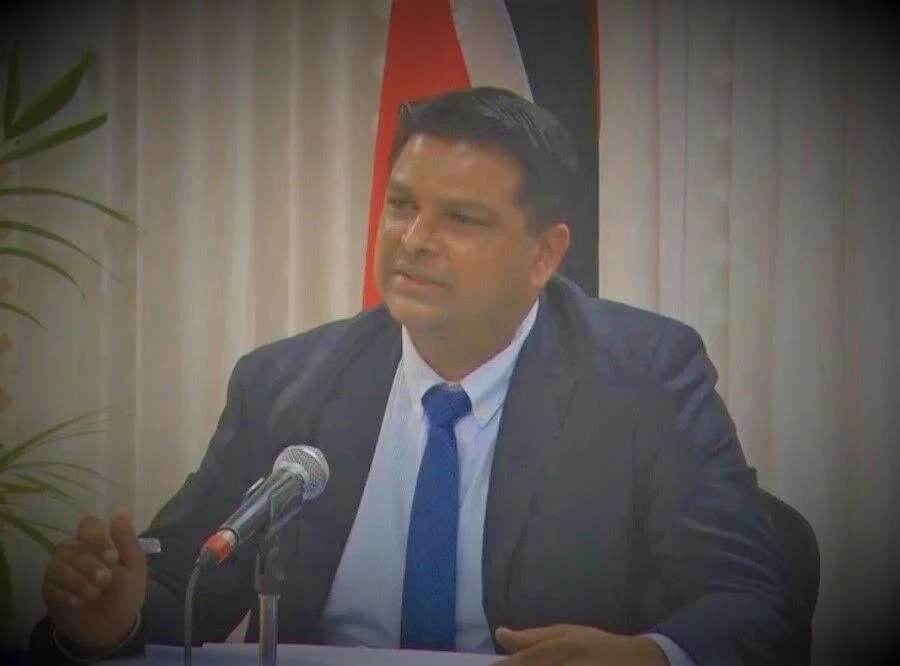(Trinidad Express) Thirty-eight per cent of the murders committed in Trinidad and Tobago for the year thus far have been linked to gang-related activities.
This according to Superintendent Rishi Singh of the Trinidad and Tobago Police Service’s Homicide Bureau.
Singh, who gave an analysis of the country’s 192 murders during a Ministry of National Security press conference on Monday, said that drug related activities accounted for 17 per cent while 13 per cent were attributed to robberies.
“What we have observed also in relation to domestic violence and altercations, together add up to 15 per cent. But embedded in that are sub-levels of altercations…land disputes and property disputes. And in the context of domestic violence matters, we have intimate and non-intimate,” Singh said.
“What we are seeing trending at the moment is the fact that we have familial killings that are inconsistent with our previous realities in terms of husband and wife, boyfriend and girlfriend type of homicides.
“Recently, we had a situation where it was alleged that a daughter killed her mother and we have situations where parents killing children.”
He said some of the homicides have occurred in non-intimate contact settings in neighbourhood where you find neighbourly types of killing.
“What these things are pointing out is in fact the need for conflict resolution in communities.”
Singh said that not too long ago there was a situation where somebody was using a weed wacker in their yard and a neighbour found disfavour with that, resulting in a death.
“Then we had a situation where somebody wackering again, some chadon beni got cut down, somebody couldn’t control their anger a particular way…death. We had a situation where a neighbour would have come over in the night and killed another member of the neighbourhood merely because a parent may have discouraged the child from keeping an association. And these are some of the current recent developments.
“So, in understanding that one might ask the utility of treating with the issue of putting out there probable causes. The duty of the police primarily is to secure the citizenry, which is done through specific deterrents where we investigate and charge individuals. But equally, we’re the body that is responsible for identifying through our analysis of the crime patterns, what types of interventions that we need to structure collectively as an organizations, that will help us determine what type of remedies to make available to the members of the public in an effort to mitigate against future crime trends.
He said stating the probable cause of a crime doesn’t mean that the crime has been solved, but it certainly tells them what they need to do, what is symptomatic of what society is facing.
“So again, something like a patrol will be an initiative in opportunity reduction. But when you look at the other components of behaviour, crime being behaviour, you would see opportunity reduction is one strategy. Changing the way people rationalise and think is certainly one of the other things that we must put together to intervene.
“Even when we interface with each investigation, we notice that sometimes the dynamic changes in relation to the motives as the investigation unveils certain facts. You also see within that there might be multiple probable causes because of the overlap the nature of probable causes.
“So basically, we just wanted to bring these realities out there, recognising as the Commissioner of Prisons would have pointed out and it resonated with me, is that it’s effectively citizens that are bringing down onto the public a particular type of behaviour.
“There’s nobody else. Nobody is coming into Trinidad and Tobago and perpetrating this volume of crime. Certainly there’s the foreign dynamic, but our initial pieces of information is not suggesting that the presence of foreigners in our land is so overwhelming that it’s the source of all the problems that we have. It is, as the Commissioner of Prisons pointed out, our own,” Singh said.
He said when sometimes people are not safe in the space where they share intimate relations, it’s concerning, and it’s expanding even more and more.
“One of the challenges to my analysis that bothers me a bit is that over the years our actual detection has increased. For the year already we have charged more than 30 persons for homicides, but we’re not seeing a reduction in crime that is brought about by a specific deterrent. And that is concerning because it tells us that we’re perhaps so torn and worn as a person, as a group of people, that it’s easy for somebody to look at the life of another and say that it’s of no value to me, and we perpetrate a particular type of behaviour.”
He noted that every single homicide is a very serious thing and that all their resources go into it.
“My officers are in fact exhausted but they continue to be willing. We know that we have a lot more work to do. But we’re unrelenting in that regard,” Singh stated.

